Search
Search Results
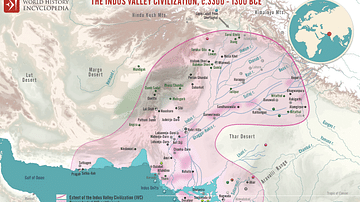
Article
Religious Developments in Ancient India
For well over 1,000 years, sacred stories and heroic epics have made up the mythology of Hinduism. Nothing in these complex yet colourful legends is fixed and firm. Pulsing with creation, destruction, love, and war, it shifts and changes...
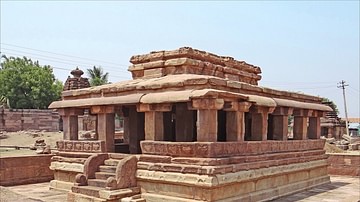
Definition
Aihole
Aihole (Ayyavole) was an ancient walled city in Karnataka, central India. Aihole was the first regional capital of the Karnakata region under the rule of the Chalukyas. The large number of early Hindu temples and shrines at the site mostly...
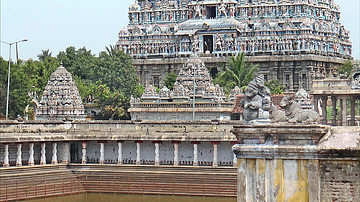
Definition
Chidambaram
Chidambaram (Cidambaram) is an important Chola temple site in Tamil Nadu, southern India. Most of the temples at Chidambaram were built in the 12th and 13th centuries CE. The site is dominated by the huge gateway tower of the Nataraja temple...

Definition
Buddhism
Buddhism is a non-theistic religion (no belief in a creator god), also considered a philosophy and a moral discipline, originating in the region of modern-day India in the 6th and 5th centuries BCE. It was founded by the sage Siddhartha Gautama...
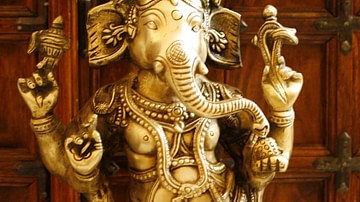
Definition
Ganesha
Ganesha (also Ganesa or Ganapati) is one of the most important gods in Hinduism. Ganesha is easily recognized with his elephant head and human body, representing the soul (atman) and the physical (maya). Ganesha is the patron of writers...
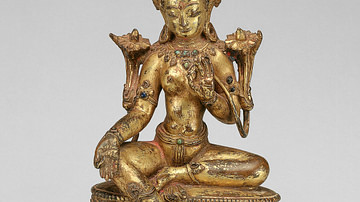
Definition
Tara
Tara is a female deity in both Hinduism and Buddhism who personifies compassion and offers salvation from the suffering of rebirth and death. She is thought to have been born of empathy for the suffering world and is regularly invoked for...
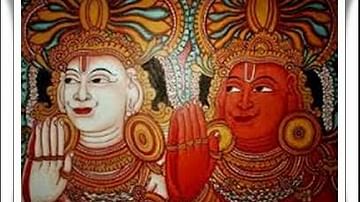
Definition
Ashvins
The Ashvins (aka Asvins, Asvinau, or Asvini Kumaras) are two twin brothers of Hindu mythology, sons of the sun god Surya. They may also be referred to as the 'Horsemen' and are forever young, handsome, and athletic. They are considered the...
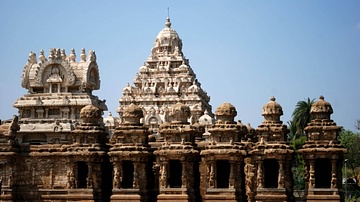
Definition
Kanchipuram
Kanchipuram (sometimes simply called Kanchi or Kanci) is an ancient city in the Tamil Nadu region of southern India. Once a capital of the Pallava dynasty, Kanchipuram was also a noted centre of learning for Tamil and Sanskrit scholars. Known...
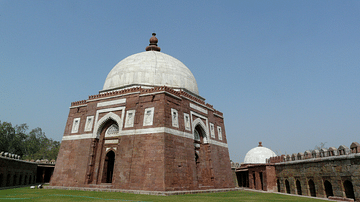
Definition
Tughlaq Dynasty
The Tughlaq dynasty (also spelt Tughluq), ruled the Delhi sultanate from 1320 to 1413. Followed by the Khalji dynasty and preceded by the Sayyids, the Tughlaq dynasty formed an important period in the history and culture of the Sultanate...
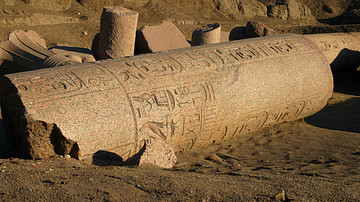
Definition
Third Intermediate Period of Egypt
The Third Intermediate Period (c. 1069-525 BCE) is the era following the New Kingdom of Egypt (c. 1570-c.1069 BCE) and preceding the Late Period (c.525-332 BCE). Egyptian history was divided into eras of 'kingdoms' and 'intermediate periods'...